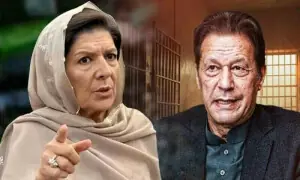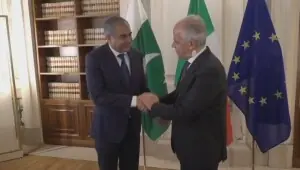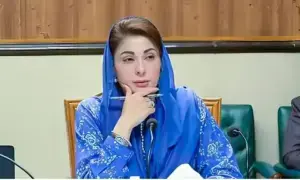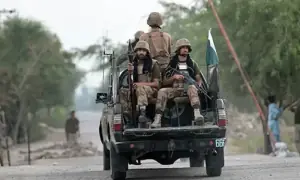Why has the IMF been so strict on Pakistan this time?
4 min readIf you have been following the way politicians talk about the IMF in Islamabad you’ll hear the word “strict” a lot. Finance Minister Ishaq Dar has said that the IMF wasn’t as strict when Pakistan was negotiating in 2013. Shaukat Tarin has said the same thing as has Prime Minister Shehbaz Sharif. It was used so many times that it has become the common petulant view on the bailout.
But has the IMF actually been extra strict with Pakistan or is this a misguided view? Uzair Younus, who is the director for the Atlantic Council’s Pakistan initiative, argues for more of a reality check. He has the advantage of a view from Washington where he works, and Pakistan which he visits and where he is from.
In his analysis, there are three broad reasons why the IMF has been “strict” with Pakistan.
The world has changed
In 2008 there was a global financial crisis and interest rates went to zero and stayed there for almost a decade. So a lot of money was circulating in the world, easy money, “muft ka paisa”. And then interest rates went up.
“There are dozens of countries like Pakistan, Sri Lanka, Zambia, Ecuador, who have taken a lot of loans in these last ten years,” said Uzair in an interview over Zoom on Tuesday. “Now they are all standing in line outside the IMF, China, Saudi Arabia.” So if the IMF is soft with Pakistan, the 12 other countries standing behind it will ask, what about us?
No credibility
Uzair gives an analogy to explain how Pakistan has lost credibility and is hence having a so-called hard time squeezing money out of the IMF.
There’s a guy who goes to the bazaar to do business. He takes credit or money once but then gambles it away or fritters it away on booze. Then you find out he goes home and beats his wife. He comes around for credit a second time and the bazaar wallahs give him money. He does the same thing. By the third or fourth time, no one in the bazaar is willing to give him credit, especially when his own family isn’t giving him money.
Uzair likens that family to Pakistan’s own elite. “When Pakistan’s elite are not willing to take the load, why should the world’s rich?”
Geopolitical rents
After 9/11, the world went easy on Pakistan because it was an ally on the war in Afghanistan. Now that war is over. According to Uzair, it could have been the case that traditionally, the US President would have made a phone call to the IMF and told it to go easy on a country. This happened with Argentina, which landed a great IMF program because it was considered an important Latin America country. (The IMF was criticised for “placing geopolitics over economics” in this case).
“Pakistan doesn’t have value in the same way anymore,” he says. “The geopolitical rents are not the same. This is why there is strictness.”
So will this money help?
Uzair argues that even if Pakistan gets the IMF dollars, the money isn’t going to make that much difference.
“If $10 billion were to fall from the sky even then, in my estimate, in the next four to six months you’d be back to zero because your problems have become so bad in your economy,” he says.
The IMF, Saudi Arabia, Qatar, China, UAE are not giving Pakistan that much money, because they know we are heading into elections in all likelihood in the next few months or so. “So if they give Ishaq Dar $5 billion now, then he will, like that gambler, fritter away that money,” he says. “They know that elections are coming and they plan to spend to win the elections.” Then we’d be back to asking for more money.
Delusional thinking
As he works in the US, Uzair is able to get a sense of how Pakistan’s economic crisis is being perceived there. He believes that the small group of Pakistan watchers in Washington have a closer view of reality than those in Islamabad. Even people in Karachi have more clarity, he has estimated from his conversations with them.
“[However], in Islamabad, you will find delusional thinking when you talk to people in the corridors of power,” he says.
He tells a little story. During the IMF talks, he heard chatter in Islamabad that they would pick up $1 billion to $2 billion from the Euro bond market, arguing that if Argentina could do it, so could Pakistan. The only problem was that Pakistan’s credit rating closes it off to the bond market.
“This was delusional,” he says. “When I was in Islamabad last September, I saw that they did not grasp reality. The world has changed so much. The attitude towards Pakistan has changed. They have misread it.”
He feels that this delusion in Islamabad is driving the decision-making crisis and they are not able to recognize this is one of the most serious economic crises that the country has faced.
This interview has been edited for clarity and length.
For the latest news, follow us on Twitter @Aaj_Urdu. We are also on Facebook, Instagram and YouTube.





















Comments are closed on this story.